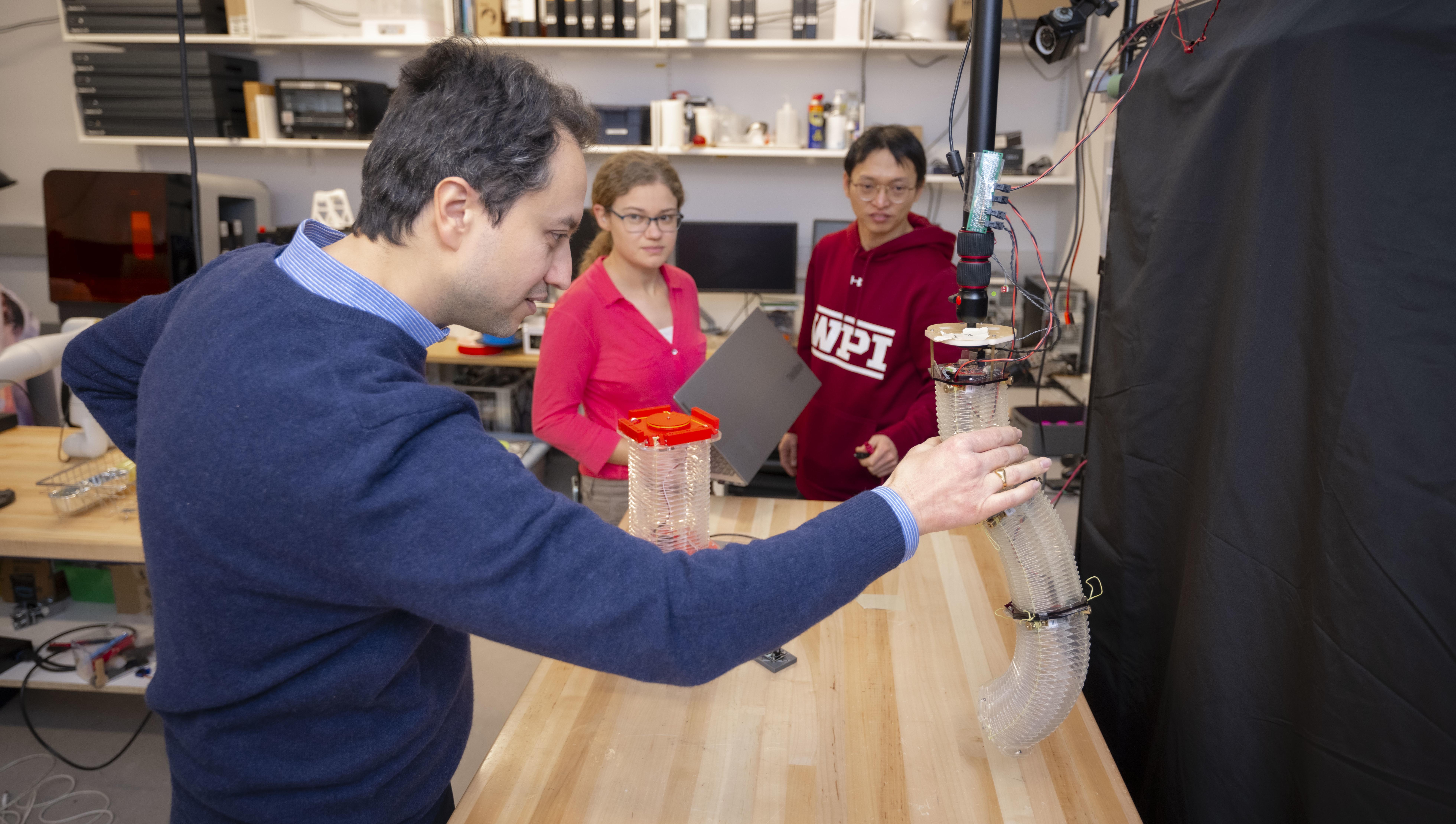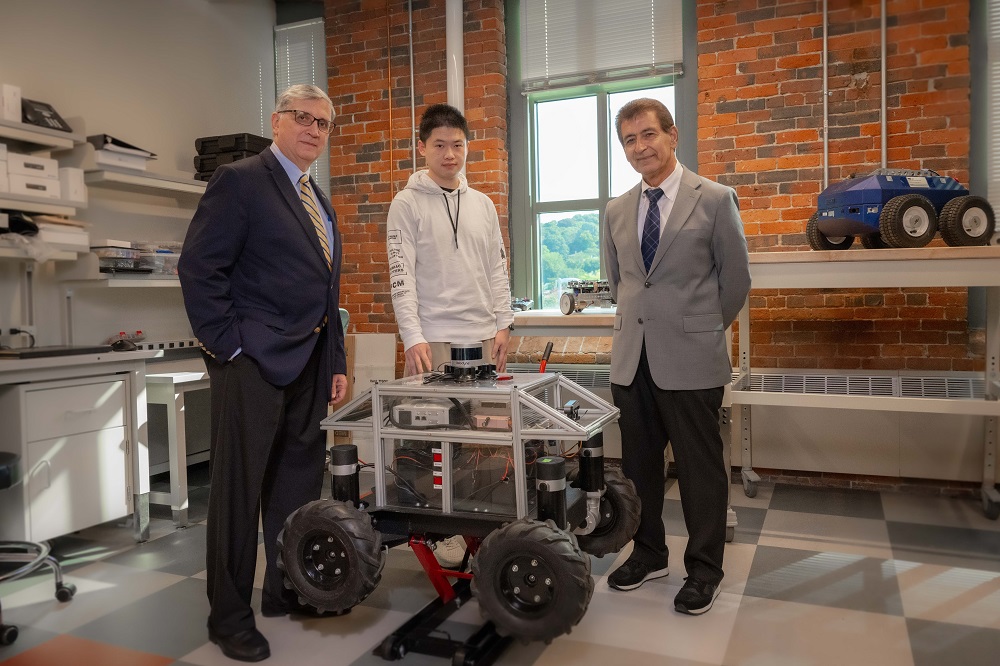World Record setting autonomous boat, Scout, makes its way to Spain.
Want to watch a WPI student set a world record live? Then click here and follow Scout, a record-setting autonomous boat built by Dylan Rodriguez ’14 and a team of talented friends, as they attempt to make the first successful transatlantic crossing by an unmanned vessel.
Scout is already 300 miles out to sea, shattering the previous record of 60 miles set by a team from Aberystwyth University in 2010.
“It’s been a pretty cool experience thus far,” says Rodriguez, a native of Rhode Island, who is back on the WPI campus for the start of A-Term. “But we’ve got a long way to go. The goal is to reach Spain.”
The idea started when Rodriguez’s good friend Max Kramers attended school in Spain and both lamented how difficult it was to stay in touch across the Atlantic. “We were joking about sending messages in a bottle when the idea hit us.”
Rodriguez and Kramers got to work, and quickly added lifelong friends Dan and Mike Flanigan, Brendan Prior, David Pimental, and Ryan Mueller ’13 to the project. “We all grew up together in Rhode Island, except for Ryan, who I met here at WPI” says Rodriquez.
Scout is not Rodriguez’s MQP project. Nor is it officially affiliated with any university, as team members attend different schools, (Bucknell, Notre Dame, WPI, Northeastern, and Endicott). The team first found funding through online funding site Kickstarter that brought in $3,000. That provided the encouragement to land Jamestown Distributors as a sponsor. Jamestown, a local family-owned marine and building supply company based in Bristol, RI, was key to the project, says Rodriguez. “Landing a sponsor like Jamestown that knows boats was very helpful.” Other funding came via Scout’s Facebook page.
In all, the team spent $6,000 building the 12-foot boat, using many off-the-shelf components. A micro-controller handles navigation while another handles sensors and communications via a small satellite transceiver. Pre-programmed, Scout relies on sensors to handle the changing conditions of the Atlantic ocean. The boat is powered by solar panels that were laminated straight onto the deck, which is tilted south for maximum sun exposure. Scout also sleeps every so often to both rest and recharge itself.
Rodriguez, who did his IQP on the viability of autonomous boats, says Scout has commercial possibilities. The boat’s sensors record various ocean data, ranging from salinity to barometric pressure. “During an oil spill, for instance, an autonomous vessel could be used to track it in real time, as opposed to satellite images, which have limitations.” Ocean data now appears on the Scout tracking site in real time. Asked if he thinks Scout will ever be used to keep overseas friends in better contact, Rodriguez gives a laugh. “I’m not sure if that’s a viable commercial use, but Scout certainly brought our team closer together.”
Next stop for this talented team of college students? Spain and the potential for some serious history making.

